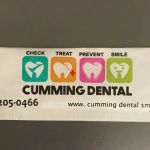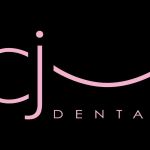Common Symptoms of Tooth Disease in Elderly Patients
- 1. Introduction to Tooth Disease in the Elderly
- 2. Common Oral Health Issues in Aging Individuals
- 3. How to Recognize the Symptoms of Tooth Disease
- 4. Treatment Options for Tooth Disease in Elderly Patients
- 5. Preventive Measures to Maintain Oral Health in Older Adults
1. Introduction to Tooth Disease in the Elderly
As individuals age, maintaining oral health becomes increasingly important. Tooth disease in elderly patients can result from various factors, such as reduced salivation, difficulty in maintaining oral hygiene, and the natural wear and tear of teeth. This article aims to help you understand the common symptoms of tooth disease in older adults and how these issues can be addressed to improve their quality of life.
2. Common Oral Health Issues in Aging Individuals
As people grow older, their dental health often faces new challenges. Reduced saliva production, gum recession, and weakened tooth enamel are some of the primary oral health issues faced by seniors. These conditions make the elderly more susceptible to developing tooth disease such as cavities, gum disease, and tooth decay. Additionally, conditions like diabetes and medications for other health issues may exacerbate oral health problems in older adults.
One of the most common dental problems in seniors is tooth decay. The natural aging process causes the enamel to weaken, making it easier for bacteria to penetrate the tooth surface. This can lead to cavities, which may go unnoticed in the early stages.
3. How to Recognize the Symptoms of Tooth Disease
Recognizing the symptoms of tooth disease in elderly patients is crucial for early intervention and effective treatment. Some common symptoms to look out for include:
- Persistent bad breath or a metallic taste in the mouth
- Gum pain, swelling, or bleeding
- Tooth sensitivity to hot, cold, or sweet foods
- Loose teeth or teeth that are shifting position
- Visible decay or discoloration on the teeth
If any of these symptoms are present, it's essential to seek dental advice. Delayed treatment can lead to more severe conditions like gum disease, tooth loss, and infections that may affect overall health.
4. Treatment Options for Tooth Disease in Elderly Patients
Early diagnosis and appropriate treatment can significantly improve oral health in elderly individuals. Treatment options may include:
- Professional cleaning and scaling to remove plaque and tartar buildup
- Fillings or crowns for teeth affected by cavities
- Root canal therapy for severe tooth decay
- Gum treatments for periodontal disease
- Tooth extractions when teeth are beyond repair
In many cases, dentists may also recommend regular check-ups and the use of fluoride treatments to help strengthen teeth and prevent further damage.
5. Preventive Measures to Maintain Oral Health in Older Adults
Preventing tooth disease in elderly patients is always better than treating it. Simple changes to daily habits can help maintain optimal oral health:
- Brush teeth at least twice a day using fluoride toothpaste
- Floss daily to remove plaque between teeth
- Visit the dentist regularly for check-ups and cleanings
- Stay hydrated to promote healthy saliva production
- Limit sugary foods and drinks that contribute to tooth decay
By following these steps, seniors can maintain healthy teeth and gums, reducing the risk of tooth disease and enjoying a better quality of life in their later years.







 Kremers, Forbes and Associates DDS5.0 (689 review)
Kremers, Forbes and Associates DDS5.0 (689 review) VCC: The Gary Center2.0 (45 review)
VCC: The Gary Center2.0 (45 review) Hassan Ismail5.0 (1 review)
Hassan Ismail5.0 (1 review) Open Door Family Medical Center- Sleepy Hollow4.0 (215 review)
Open Door Family Medical Center- Sleepy Hollow4.0 (215 review) Cumming Dental Smiles: Bethelview Road4.0 (529 review)
Cumming Dental Smiles: Bethelview Road4.0 (529 review) CJ Dental4.0 (13 review)
CJ Dental4.0 (13 review) The Importance of Oral Health Education During Pregnancy for a Healthy Pregnancy
The Importance of Oral Health Education During Pregnancy for a Healthy Pregnancy Best Tips for Brushing Your Teeth Properly for Healthy Gums: Essential Techniques for Oral Health
Best Tips for Brushing Your Teeth Properly for Healthy Gums: Essential Techniques for Oral Health Why Skipping Dental Checkups Can Lead to Bigger Oral Health Problems
Why Skipping Dental Checkups Can Lead to Bigger Oral Health Problems Advantages of Porcelain Dental Restorations
Advantages of Porcelain Dental Restorations How Can Diabetes Cause Tooth and Gum Problems? Preventing and Managing Oral Health Issues
How Can Diabetes Cause Tooth and Gum Problems? Preventing and Managing Oral Health Issues Healthy Habits for Promoting Good Oral Health and Hygiene: Tips for a Healthy Smile
Healthy Habits for Promoting Good Oral Health and Hygiene: Tips for a Healthy Smile